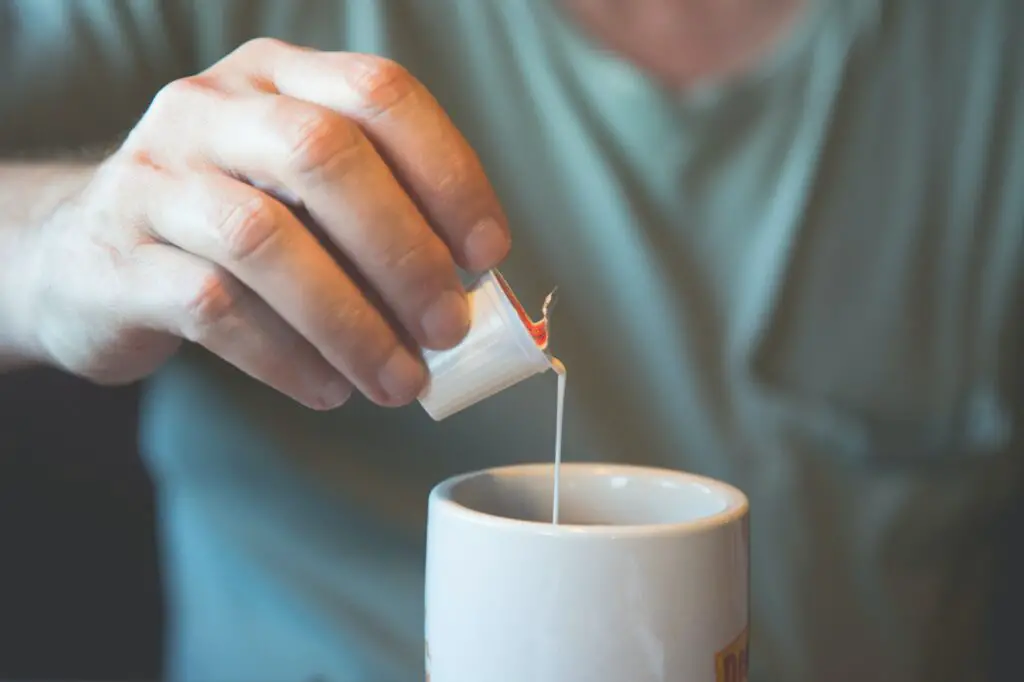Coffee and tea are two of the most popular beverages in the world, each with its own unique flavor and benefits.
However, for some people, coffee can cause headaches while tea does not. But why is this the case? There’s no doubt it can be a perplexing issue, and, as with many things, there are several factors that contribute to it.
Caffeine Highs (and Lows)
As you may have guessed, the main culprit is caffeine, a natural stimulant found in both coffee and tea.
While caffeine can provide a boost of energy and mental clarity, it can also cause headaches, especially when consumed in excess. However, there are other factors at play, such as genetics and your individual caffeine metabolism.
When it comes to coffee headaches, symptoms can include throbbing pain, sensitivity to light and sound, and nausea. These headaches can be caused by various factors, such as dehydration, withdrawal from caffeine, or even the acidity of the coffee.
To prevent coffee headaches, it’s important to stay hydrated, limit caffeine intake, and choose lower acidity coffee beans.
On the other hand, tea is less likely to cause headaches due to its lower caffeine content and higher levels of antioxidants.
In fact, some types of tea, such as green tea, can actually have a calming effect on the body and mind.
Also, tea contains an amino acid called L-theanine, which can help to counteract the negative effects of caffeine.
Aside from coffee and tea headaches, there are other perplexing questions surrounding these popular beverages.
For example, some people simply dislike the taste of coffee or tea, while others swear by drinking them on an empty stomach.
Ask any drinker and they will also tell you that coffee and tea can cure a hangover, although the truth behind this is still unclear.
Other Perplexing Questions
Why do some people hate coffee or tea?
Taste preferences are subjective and can vary greatly from person to person.
While some of us may dislike the bitter taste of coffee or the astringency of tea, others may simply have had negative experiences with caffeine or simply prefer other beverages.
Personal preferences can also be influenced by cultural or societal norms, as well as individual genetics and upbringing so, unfortunately, theres no easy answer to this particular question.
Is it bad to drink coffee or tea on an empty stomach?
This really depends on the individual. Some people may experience stomach discomfort or acid reflux when consuming coffee or tea on an empty stomach, while others may not have any issues. It’s generally recommended to have a small meal or snack before consuming caffeine to avoid any potential discomfort. Drinking water before and after consuming caffeine can also help to reduce the risk of negative side effects.
Can coffee or tea really cure a hangover?
While caffeine may help to alleviate some symptoms of a hangover such as fatigue and headaches there is no evidence that it is a cure for a hangover. In fact, consuming caffeine can further dehydrate the body, which can worsen hangover symptoms so itt’s important to stay hydrated and replenish electrolytes with water or sports drinks, and to consume nutritious foods to help the body recover from the effects of alcohol.
Can drinking too much tea really be harmful?
While tea is generally considered a healthy beverage, consuming too much of it can have negative side effects.
Thats because, as we’ve discussed, tea contains caffeine, which can cause jitters, nervousness, and difficulty sleeping if consumed in excess. What’s more, some teas contain high levels of oxalates which can contribute to the formation of kidney stones if consumed in excess.
So, it’s generally recommended to consume tea in moderation and to opt for decaffeinated varieties if caffeine sensitivity is an issue.
So, in conclusion, whether you prefer coffee or tea, it’s important to understand the effects of caffeine on your body and to listen to your own personal reactions.
By experimenting with different types and amounts of caffeine, you can find what works best for you and avoid the perplexing headaches that can come with drinking coffee.
FAQs
- Can drinking decaf coffee still cause headaches?
- Yes, decaf coffee still contains small amounts of caffeine which can cause headaches in some people.
- Why do some people get jittery after drinking coffee?
- Jitteriness can be caused by the stimulant effect of caffeine, which can make some people more sensitive than others.
- Does the temperature of the coffee or tea matter?
- Does the temperature of the coffee or tea matter?
- The temperature of the beverage can affect its taste and texture, but it doesn’t necessarily have an impact on whether it will cause headaches or not.
- Is it true that coffee and tea can stain your teeth?
- Yes, both coffee and tea contain tannins which can cause teeth staining over time.
- Can caffeine be addictive?
- Yes, caffeine can be addictive and can cause withdrawal symptoms such as headaches, fatigue, and irritability when consumption is abruptly reduced.













